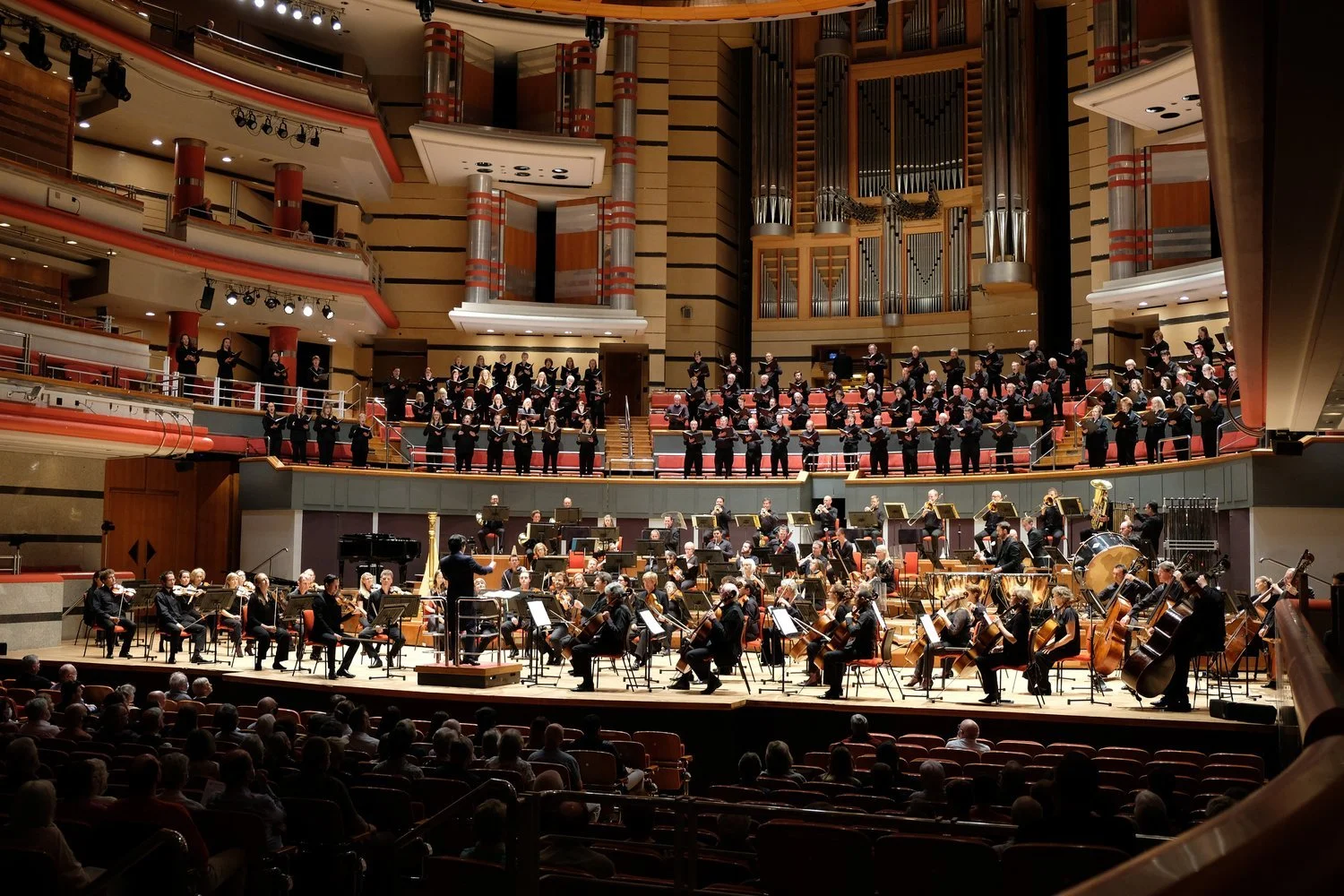Vespers of the Blessed Earth, CBSO, Symphony Hall, Birmingham. 5✩✩✩✩✩ Review: David Gray & Paul Gray.
Vespers of the Blessed Earth, CBSO, Symphony Hall, Birmingham.
5✩✩✩✩✩ Review: David Gray & Paul Gray.
“A profound and thoughtful new work followed by a revelatory reading of an established masterpiece.”
Adams – Vespers of the Blessed Earth (CBSO Commission: UK premier)
Sibelius – Symphony No. 2 in D, Op 43
Despite the enormity of its subject matter, or perhaps because of this, Adams ‘Vespers of the Blessed Earth’ is a rather understated piece. The significant forces at play are seldom, if at all, used in their entirety. It does not assert itself with any grand gestures. There is nothing bombastic. Instead, it seems to invoke a sense humility as it invites us to contemplate the wonder of our planet and the dangers facing it and us.
Contrary to what we might expect from the works of other composers who concern themselves with the fate of our planet, it does not evolve from a rumbling bass note in the brass or double basses. Its starting point is high-pitched percussion and very high-pitched soprano voices. The melodic writing is generally characterised by descending figures which form a unifying idea running through.
It is a work that somehow holds itself in a kind of statis, with each of its five movements exploring contrasting textural ideas by way of meditative repetition, rather than through motivic or harmonic development.
Overall, an evocative and provocative composition. The final movement, a solo vocalese with mainly string accompaniment, beautifully sung by soprano Katie Trethewey, fades to a spellbinding stillness punctuated by off-stage birdcall-like effects. I have never been so aware of the amount of noise produced by an audience of hundreds trying to be quiet. But this, perhaps, is what Adams wants us to do; to be still and listen attentively to the world we live in.
After the interval, Sibelius’ Symphony No 2, seemed to be an apt companion piece for the Adams. Whereas Adams offers a 21st Century vision of nature, and how humanity endangers it, Sibelius offers a 19th Century concern for the land, and how humanity identifies with it. His music is about nationhood.
Conductor, Ludovic Morlot’s reading of this work was tightly integrated, and characterised by a keen feeling for its motivic unity. The build and release of energy was tightly and expressively controlled to drive the work’s emotional narrative. This resulted in a powerfully structured reading that highlighted the symphony’s architectural strength.
An attentive and responsive CBSO exhibited exemplary ensemble and balance & matched the muscularity of Morlot’s vision with bold and incisive playing. The strings were particularly lustrous, but it seems churlish to highlight the excellence of one section when all were so very much at the top of their game.
Conductor – Ludovic Morlot
Soprano – Katie Trethewey
